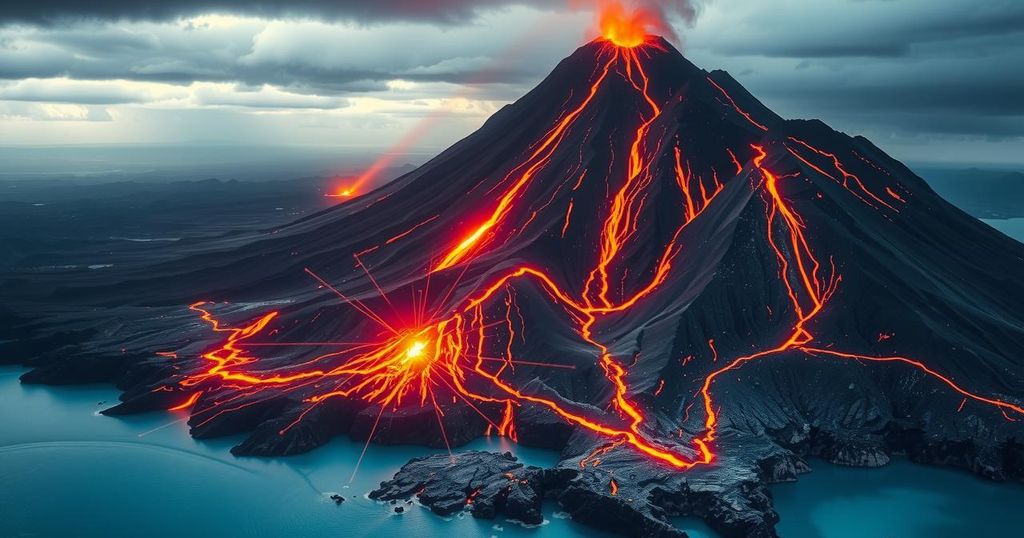Preparing for the Next Major Volcanic Eruption: A Global Imperative
Experts predict that a massive volcanic eruption could occur this century, posing unique threats to a climate-challenged world. The lessons learned from Mount Tambora’s eruption highlight the potential for widespread chaos, and scientists call for preparedness due to the severe implications for food security and climate stability. A proactive approach is essential to mitigate risks as the world awaits the next inevitable volcanic event.
The potential for another significant volcanic eruption looms on the horizon, with scientists warning that the world is ill-prepared for the chaos that may ensue. Historical precedents, such as the catastrophic eruption of Mount Tambora in 1815, illustrate the far-reaching consequences of such events, including climate disruptions that led to widespread famine, disease, and significant demographic shifts. In a stark contrast to the global landscape of 200 years ago, the modern world—a more populated and climate-challenged environment—poses unique threats following an eruption that could cool the planet significantly. Experts from various geological and climatic disciplines emphasize a critical need for preparedness, highlighting that while volcanic eruptions are natural phenomena, their implications on human systems and the environment can be devastating, and proactive measures must be taken to minimize their impact.
Throughout history, volcanic eruptions have played a pivotal role in shaping the Earth both geologically and climatically. The eruption of Mount Tambora serves as a prime example, resulting in climatic anomalies experienced worldwide. As scientists assess the likelihood of future eruptions, they focus on the interplay between volcanic activity and climate change, especially as the world faces unprecedented warming. The dangerous potential of massive eruptions to drastically alter weather patterns and agricultural outputs necessitates a thorough understanding of past events and their implications. By studying the geological and atmospheric effects of previous eruptions, experts aim to anticipate the consequences of future volcanic events, with particular attention to regions at risk.
The imminent threat of a significant volcanic eruption is assured, yet the world remains remarkably ill-equipped to deal with the subsequent societal and environmental upheaval. Historical data underscores the potential for drastic temperature drops and resultant global instability following such eruptions. As experts advocate for comprehensive preparedness strategies and risk assessment measures to safeguard populations, it becomes clear that while eruptions are unavoidable, mitigating their impacts is critical for maintaining global stability. Transcending mere chance, the scientific community stresses the urgency of fostering resilience against this natural threat.
Original Source: www.cnn.com




Post Comment